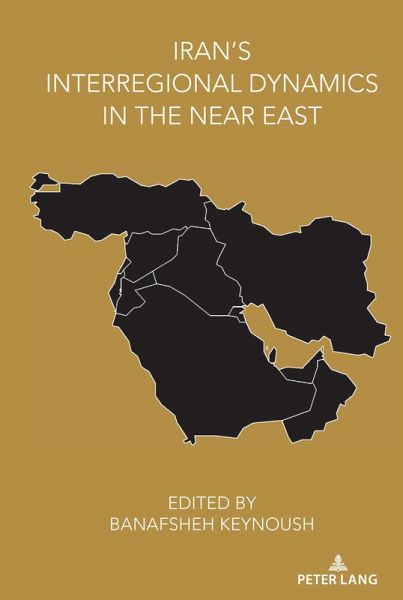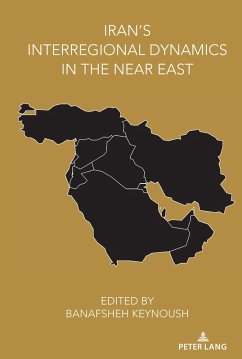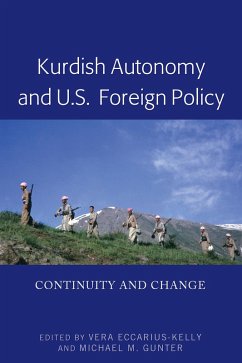
Iran's Interregional Dynamics in the Near East (eBook, ePUB)
Versandkostenfrei!
Sofort per Download lieferbar
Statt: 94,30 €**
77,95 €
inkl. MwSt.
**Preis der gedruckten Ausgabe (Gebundenes Buch)
Alle Infos zum eBook verschenkenWeitere Ausgaben:

PAYBACK Punkte
39 °P sammeln!
Few regions in the world are as torn by conflicts as the Near East, in which Iran plays a central role. Opportunities to engage with Iran are abundant, but they are squandered when regional states address immediate conflicts in which Iran is only one part, despite its prominent role. Iran's Interregional Dynamics in the Near East provides a comprehensive guide to broaden our understanding about Iran and its regional neighbors. By analyzing how Iran's neighbors view their ties with the country, this volume reveals why Iran is less successful in expanding its regional influence than what is comm...
Few regions in the world are as torn by conflicts as the Near East, in which Iran plays a central role. Opportunities to engage with Iran are abundant, but they are squandered when regional states address immediate conflicts in which Iran is only one part, despite its prominent role. Iran's Interregional Dynamics in the Near East provides a comprehensive guide to broaden our understanding about Iran and its regional neighbors. By analyzing how Iran's neighbors view their ties with the country, this volume reveals why Iran is less successful in expanding its regional influence than what is commonly assumed. This is the first book of its kind to be written exclusively by authors from and working in the Near East region who came together at a roundtable funded by and convened at Princeton University. As the moderator of the roundtable, the editor of this volume invited the authors to contribute chapters to this timely book. The book explores a wide range of topics to describe the complex relations between Iran and other states in the Near East including Israel, Saudi Arabia, Turkey, Iraq, Syria, the United Arab Emirates, Qatar, Jordan, Lebanon, Bahrain, Kuwait, and Oman. The volume is designed to inform politicians, world leaders, scholars, senior policy makers, and graduate students, and it provides an accessible guide to undergraduate students, junior scholars, and the general public.
Dieser Download kann aus rechtlichen Gründen nur mit Rechnungsadresse in A, D ausgeliefert werden.













